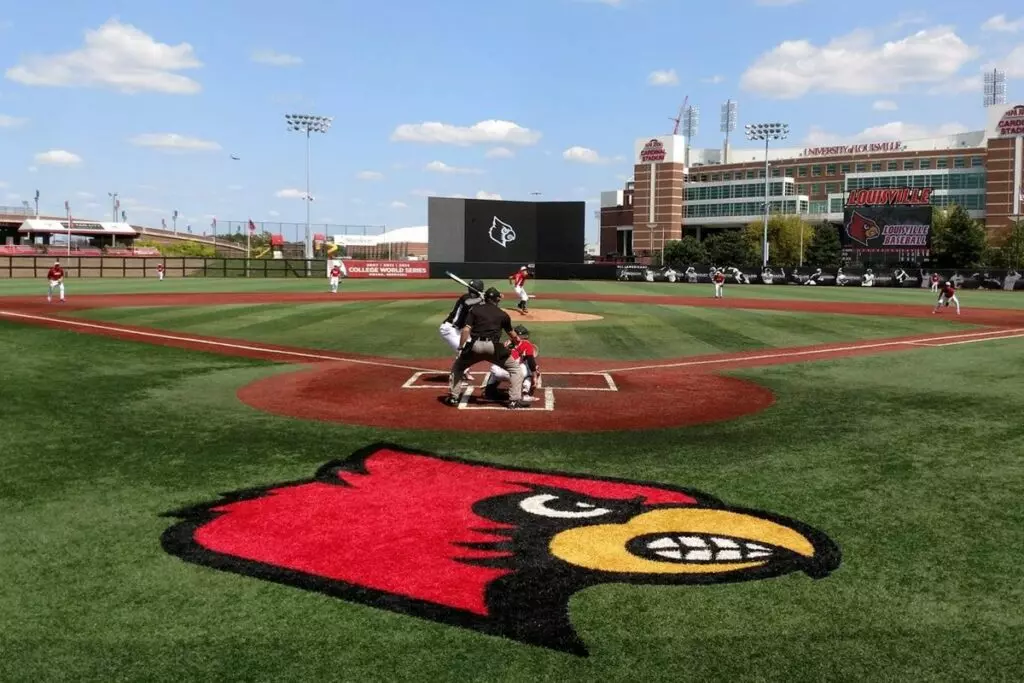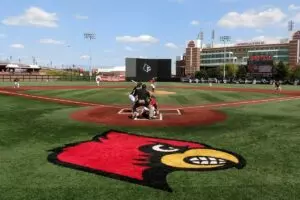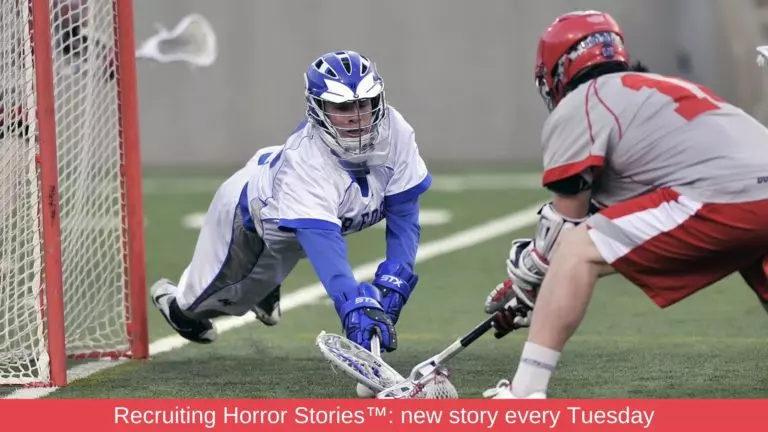Mike White played baseball for Louisville. In his final collegiate season (2015) he hit .256 with two home runs, 16 RBI, ten doubles and 11 stolen bases in 43 starts and 53 appearances. Mike also helped his team to capture the ACC Atlantic Division championship in 2015. Mike's junior year (2014), he had 11 starts and played in 50 games hitting .235 with 12 runs scored and seven stolen bases.
2aDays: What was the recruiting experience like for a nationally competitive baseball team?
Mike: Recruiting at Louisville is highly competitive, as you would imagine. They do most of their recruiting out in the Midwest; thus, I was fortunate enough to be seen by them at a national tournament in Atlanta and again in California later that same summer. They are typically known for recruiting big-time pitchers. However, my class had a good mix of premiere pitchers as well as nationally ranked hitters.
2aDays: What's something high school recruits and transfer student-athletes should keep in mind during the recruiting process?
Mike: College coaches are simply salesmen. They will all tell you what you want to hear and sell the school as if it were heaven itself. However, keeping in mind your goals outside of baseball, like degree programs and work opportunities, are essential as well. Make sure you have a decent awareness of the other players they are bringing in with your recruiting class. You don't want to be one of five middle infielders coming in all in the same year because unless you are the next best thing, you will be fighting for your life.
2aDays: How did you handle the transition from high school baseball to the Division 1 level, and what advice do you have for soon-to-be freshmen to adapt at that level?
Mike: It took me a while to adapt to the Louisville Baseball way; however, once I caught on, it was easy. The most significant adjustment for me was playing FAST. Everyone is going to play hard, but our emphasis from the time I was a freshman up until now has been playing faster and harder than your opponent. The goal is for a team to leave and be amazed by how fast and hard we played. My advice would be to start training yourself at the high school level to play at a different speed than anyone else. It will make you stand out on its own, and your talent will do the rest. Also, I would begin to establish an intense workout regimen because workouts will kick your butt if you aren't really used to lifting hard. Plus, you want to be bigger and stronger than the rest of the freshman; it never hurts to be a leg or two up.
2aDays: After going through the experience once, what would you do differently if you were back in high school in regards to the recruiting process?
Mike: If I were back in high school, I would've made a better effort to get recruited as a two-sport athlete; Baseball and Football. I began to blossom as a football player during my junior year of high school, and by senior year, I was receiving lots of interest from schools. The problem for me as I had already committed to Louisville in the summer and my parents were not very big fans of football. However, I should not have let that ultimately influenced my decision because being a two-sport athlete definitely can be rewarding. The risk of injury can happen at any level of college athletics and in any sport. So if I could do it all again, I would not concern myself too much on the possibility of getting hurt in football and not being able to play baseball or vice versa. But instead, Just give it a shot, and if it works out, then the sky's the limit.
2aDays: What made Louisville a good fit for you? Would you choose UL again if you had the chance?
Mike: I was very impressed with the program here at Louisville, and the way the city regarded Louisville athletics. What makes Louisville so unique is that it's a pretty large, upcoming urban city with no professional sports team. Therefore all there is to root for is Louisville, and fans embrace it wholeheartedly. That really fired me up, and I knew it would be an excellent environment to play in. I also liked that Louisville was a bit more southern, although not necessarily in the south, but being from New York, the allure of warmer weather was enticing. If I had the chance to do it over, I would definitely have taken more time to consider my options and visited some more schools first. In some ways, I feel like I rushed myself because I did not want to be dealing with recruiting during my last football season. However, I could have made more time for it my junior summer, but summer baseball kind of took over my life. I would definitely prioritize a little better if I could turn back the clock.
2aDays: If Locker Room Talk was available as a resource to you in high school during the recruiting process, do you think you would find it useful?
Mike: I think it would've been very helpful to hear from other baseball players at major universities just to see what their experience was like, however I think that nowadays so many athletes have friends or know someone that plays in college, so a lot of the time you will find word of mouth to be the more sought after resource.
2aDays: Did it take a long time to adjust to the different cultural down south as opposed to life in the northeast?
Mike: The culture shock was not nearly as drastic as one would imagine. Like I said before, Louisville is definitely more southern from New York. However, it is more of an urban, up-in-coming city; therefore, it doesn't have much of a southern feel. Some parts of Louisville, however, are very country feeling, so that was interesting to see, but other than that, I didn't feel completely isolated or lost at all.
2aDays: One thing high school students don't think about is the traveling aspect of college athletics. Has the traveling from home to school taken a toll on you? And what effect has traveling from college to college for each game on your college experience?
Mike: Traveling from home to school isn't terrible for me. No, it is not the most appealing drive in the world. However, I don't get to make it home often as it is, so at best, I'm making that trip once or twice a year. Otherwise, I'm flying home, and it's a relatively quick flight. Traveling during the season is virtually a breeze. I am fortunate enough to be at a university with a very large athletic budget; therefore, we always travel comfortably and rarely drive unless it is somewhat of a local game. I would say the only challenging part about traveling is keeping up with your schoolwork at the same time. If you can master that part, then traveling will not be stressful for you at all.
Updated: October 29, 2019
* Originally published on July 9, 2015, by Bryan Sosoo







